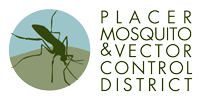Mosquito Awareness Week, observed April 16 – 22, 2023, educates California residents about mosquitoes and how to help prevent the spread of mosquito-transmitted diseases
SACRAMENTO, APRIL 12, 2023 — One of the wettest years in history has left standing water across the state, creating perfect conditions for mosquitoes to develop. Stagnant water creates havens for disease-spreading mosquitoes, and mosquito experts are concerned this could be a long and intense mosquito season.
“After record amounts of rainfall this year, it is really important for all Californians to dump and drain standing water that has accumulated in their yards, porches, and patios,” said Assemblymember Jim Wood, who authored the state resolution recognizing California Mosquito Awareness Week. “It only takes a small amount of water for mosquitoes to develop so removing all stagnant water is a simple but very effective way to help to eliminate mosquitoes from our community. Not only are mosquitoes a nuisance, but they can transmit deadly diseases. Let’s all work together to fight the bite!”
West Nile virus, spread by Culex mosquitoes, is the most prevalent and serious mosquito-borne disease in California. There is no human vaccine for West Nile virus, a disease which can cause debilitating cases of meningitis, encephalitis, and even death. In 2022, there were 209 human West Nile virus disease cases from 28 counties in California, including 13 human deaths.
In addition, invasive Aedes mosquitoes continue to spread throughout the state. First detected in 2013, they have spread to 25 counties and 300 cities and towns. These mosquitoes are very hard to control and pose a serious public health threat because they can spread diseases like Zika, dengue, chikungunya, and yellow fever to people and animal heartworm to pets.
According to the California Department of Public Health, since 2016 there have been nearly 900 California residents with travel-associated dengue infections. While there has not yet been local transmission of dengue in the state, it is occurring at California’s borders, making the threat even more real. In 2022, the border state of Sonora, Mexico had more than 9,000 cases with 91 people dying from dengue. In December 2022 in Maricopa County, Arizona, two individuals tested positive for dengue, which they acquired locally from a mosquito bite.
“While all of the rain has been great for the drought, it provides mosquitoes with more places to lay their eggs,” said Wakoli Wekesa, PhD, president of the Mosquito and Vector Control Association of California. “As we work to keep Californians safe from mosquito-transmitted diseases and combat the spread of invasive Aedes, it’s critical that residents take simple precautions to protect themselves and keep their communities mosquito-free.”
Mosquito experts say the future of mosquito control requires innovation to protect the public from mosquito-borne diseases. Mosquito and vector control agencies in California are exploring the potential use of three innovative technologies: self-limiting mosquitoes, Wolbachia, and irradiation. More information about the need for innovative technologies and how they work is available on the MVCAC website.
Everyone can do their part to help prevent mosquito bites:
- Apply insect repellent containing an EPA-registered active ingredient, including DEET, picaridin, oil of lemon eucalyptus, or IR3535, to clothes and exposed skin according to label instructions. Repellents keep mosquitoes from biting. It is important to follow EPA and CDC guidelines for the safe use of repellents on children.
- Dress in long sleeves and pants, especially if outside at dawn and dusk when mosquitoes that can spread West Nile virus are most active.
- Install screens on windows and doors and keep them in good repair to keep mosquitoes out of your home.
- Eliminate all sources of standing water on your property, including in flowerpots, old tires, buckets, pet dishes, and trash cans. Mosquitoes lay their eggs in very small amounts of standing water.
- Repair leaking faucets and broken sprinklers that can contribute to standing water around your home.
- Clean rain gutters clogged with leaves.
- Report neglected swimming pools and day-biting mosquitoes to your local mosquito and vector control agency (agency information can be found at www.mvcac.org)






